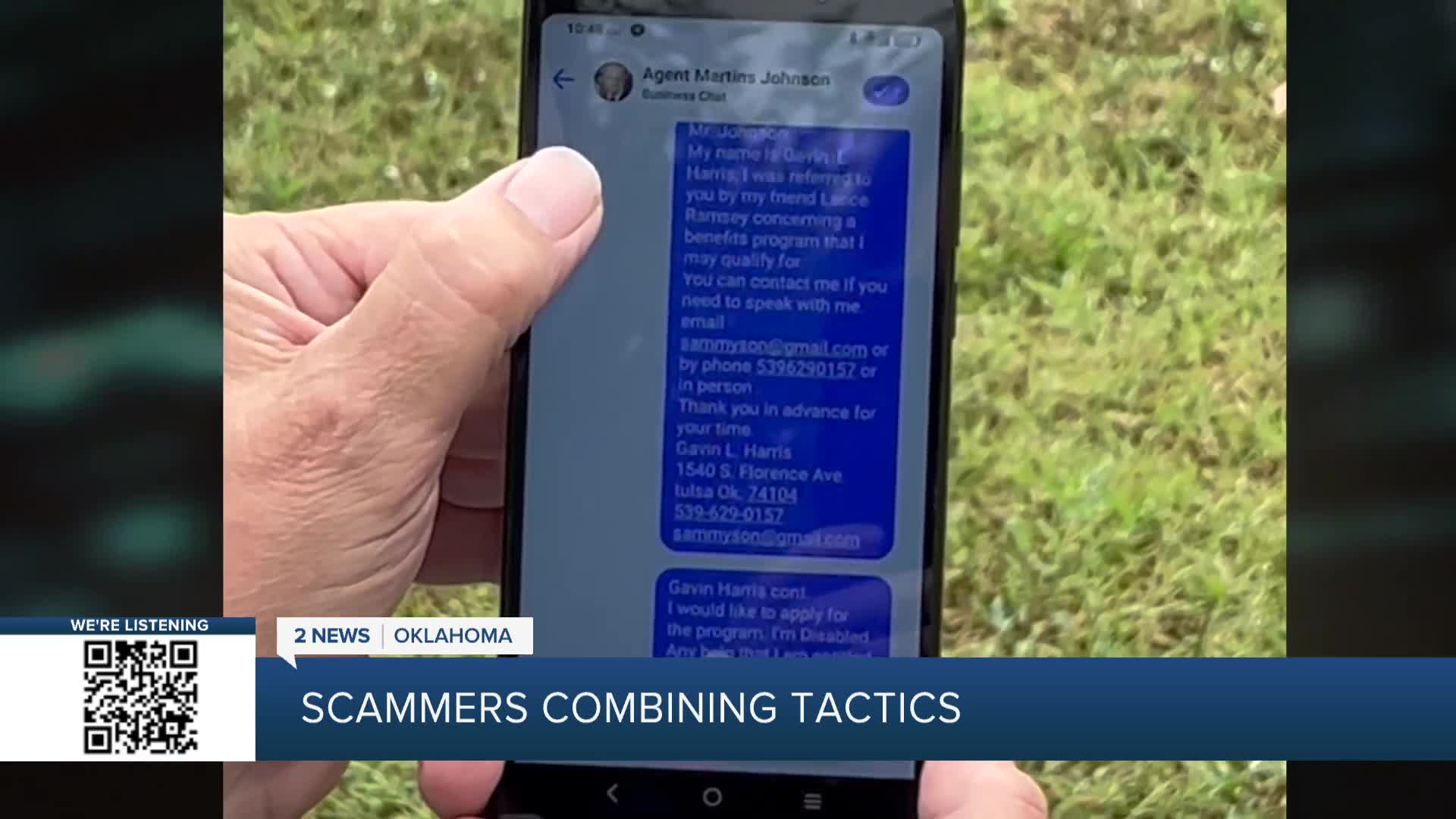TULSA, Okla. — Scammers are using a dangerous one-two punch approach, combining government impersonation scams with identity theft tactics to steal life savings and personal information.
Gavin Harris showed 2 News what appeared to be an official text he received. It included a photo of a distinguished-looking man with an official-sounding title, directing him to call to see if he is eligible to get money from the government.

"I called because I had gotten a text allegedly from Department of Health and Human Services saying that they had grants and with things being what they are right now a grant sounded good," Harris said.
After Harris responded to the initial text, scammers bombarded him with phone calls demanding upfront payments to receive the supposed grants.
"I just needed to pay $1,000 to get a certain amount or $2,000 to get a certain amount. $1,000 would be $30,000, $2,000 would be $70,000 on up to $275,000," Harris said.

The demand for upfront payment raised immediate red flags for Harris.
"My stomach said 'Why would you have to pay money to get a grant?'" Harris said.
The Federal Trade Commission identifies government impersonation scams as a significant category of fraud, with victims often suffering extraordinary financial losses. The number of older adults losing $10,000 or more to these scams has increased fourfold since 2020.
The money demand was only the first part of the scammers' strategy. The second phase involved attempting to steal Harris's personal information for the purpose of identity theft.
The callers demanded:
- bank account information
- credit card information
- photos of his driver's license
- his Social Security number
"Everything they would need to essentially take everything from me and sell my house out from underneath me and kick me out in the street," Harris said.
Harris decided to share his experience to warn others about these combined scam tactics.
"I have friends that they're smart, but when you dangle a bunch of money and they're hurting and they need something. People make foolish decisions. And I just don't want that to happen to anybody," Harris said.
Experts recommend hanging up on suspicious calls and deleting suspicious texts immediately, then reporting them as junk to prevent further contact.
"This story was reported on-air by a journalist and has been converted to this platform with the assistance of AI. Our editorial team verifies all reporting on all platforms for fairness and accuracy."
Stay in touch with us anytime, anywhere --
- Download our free app for Apple, Android and Kindle devices.
- Sign up for daily newsletters emailed to you
- Like us on Facebook
- Follow us on Instagram
- Watch LIVE 24/7 on YouTube





